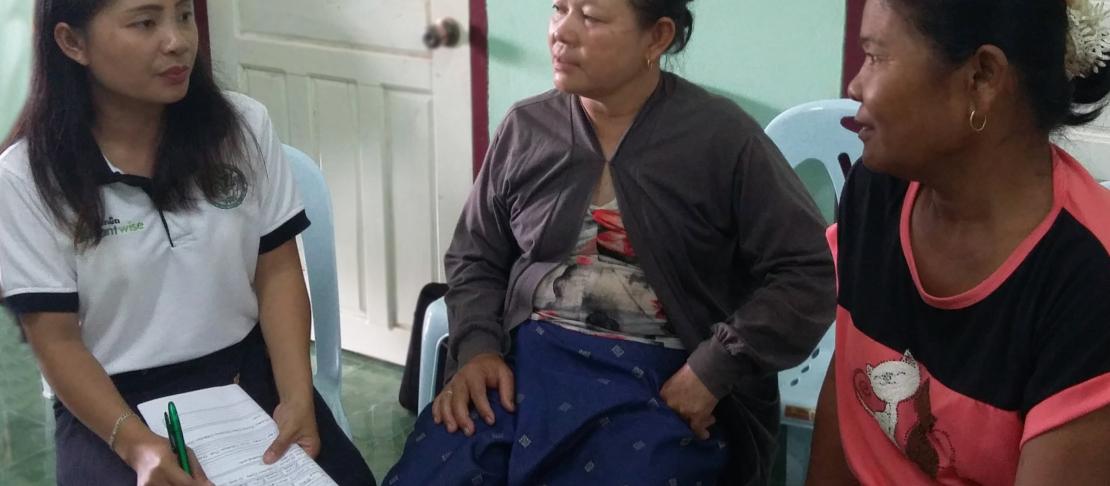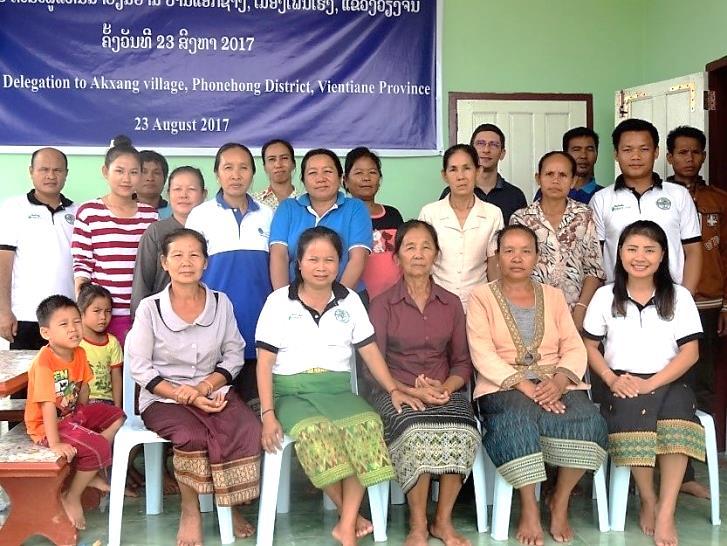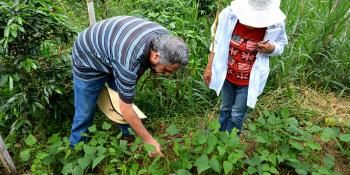Women farmers in Ekxang Village equipped with pest-smart practices against pests and diseases outbreaks

The Pest Smart program aims to enable farmers, particularly women and marginalized groups, to become resilient against potential pests and diseases outbreaks due to climate change.
The Pest Smart program promotes the adoption of climate-smart practices that manage pests and diseases, and empowers women to be actively involved in the decision-making process. It also serves as a platform to build the capacity and encourage participation of women farmers in dealing with pests and diseases (P&D).
In 2016, farmers from Ekxang, a Climate-Smart Village (CSV) in Vientiane Province, Laos, were surveyed to monitor their concerns on climate change and review the current threats that are affecting their yields. In 2017, the farmers attended a training about the role of plant clinics in building local resilience against P&D.
Participation of women in Ekxang’s plant clinic
Since its inception in 2016, the Pest Smart initiative in Ekxang is gaining a large attendance and interest among women farmers. The initiative has boosted the confidence of those farmers and increased their capacity to mitigate upcoming pest outbreaks.
Among the activities in 2017 was the Training of Master Advisors (ToMA), 43% of which were women. This training program aims to increase the capability of extension workers to manage plant clinics effectively and engage a large group of farmers.
 Participants and plant doctors at the plant clinic in Ekxang village. Photo: Pinkham Vongphachanh
Participants and plant doctors at the plant clinic in Ekxang village. Photo: Pinkham Vongphachanh
A total of 18 farmers, 12 of which were women, attended the plant clinic session. During the training, a video from the Centre for Agriculture and Biosciences International (CABI) highlighted the involvement of plant doctors in Bangladesh and the successful participation of Bangladeshi women in the plant clinics. Laotian women farmers were inspired after watching the active involvement of the Bangladeshi women in the plant clinics. Among the questions asked was about the use of neem oil extracts to protect the crops against pest insects without the need of synthetic chemicals.
The farmers were also briefed on the Pest Smart program and its benefits, which include reducing the use of pesticides while increasing the amount of yield produced. This, in turn, also decreases management costs for the farmers.
A women farmer who attended the plant clinic even said:
We are delighted that we are given the opportunity to learn and decide what is right for our farms to prevent pests and diseases.”
Committed plant doctors
Plant doctors involved in the training have played a key role in the community to convey new practices and to strengthen the farmers’ capability to mitigate P&D without the indiscriminate application of pesticides. During the plant clinic session, the plant doctors were wearing custom-made T-shirts bearing the program name and organizational logos. They looked very enthusiastic in their mission and of creating awareness on Pest Smart practices. “We have been excited by the development of Pest Smart in our region, and we hope this program will be extended by training more plant doctors. Laos has so much potential to develop these green strategies for Pests and Diseases control!,” Pinkham Vongphachanh, one of the plant doctors, remarked during the training session.
The plant doctors were determined to assist on the capacity building of the farmers. This is to create a sense of responsibility among the women farmers in managing their farms, adapting to climate changes and making better decisions. The women plant doctors have stood out as role-models for women farmers.
“I feel proud to be a plant doctor and help the farmers to understand better their P&D issues,” said Chantha Souvannasayavong, a plant doctor in the province.
Empowering women farmers on pest-smart practices is a part of building the overall capacities and skills of local farmers. The Pest Smart program has inspired many women farmers and extension workers, building the willpower within them to lead the local community in agriculture.
Read more:
Dr. Sathis Sri Thanarajoo works as a scientist at CABI Southeast and East Asia.



